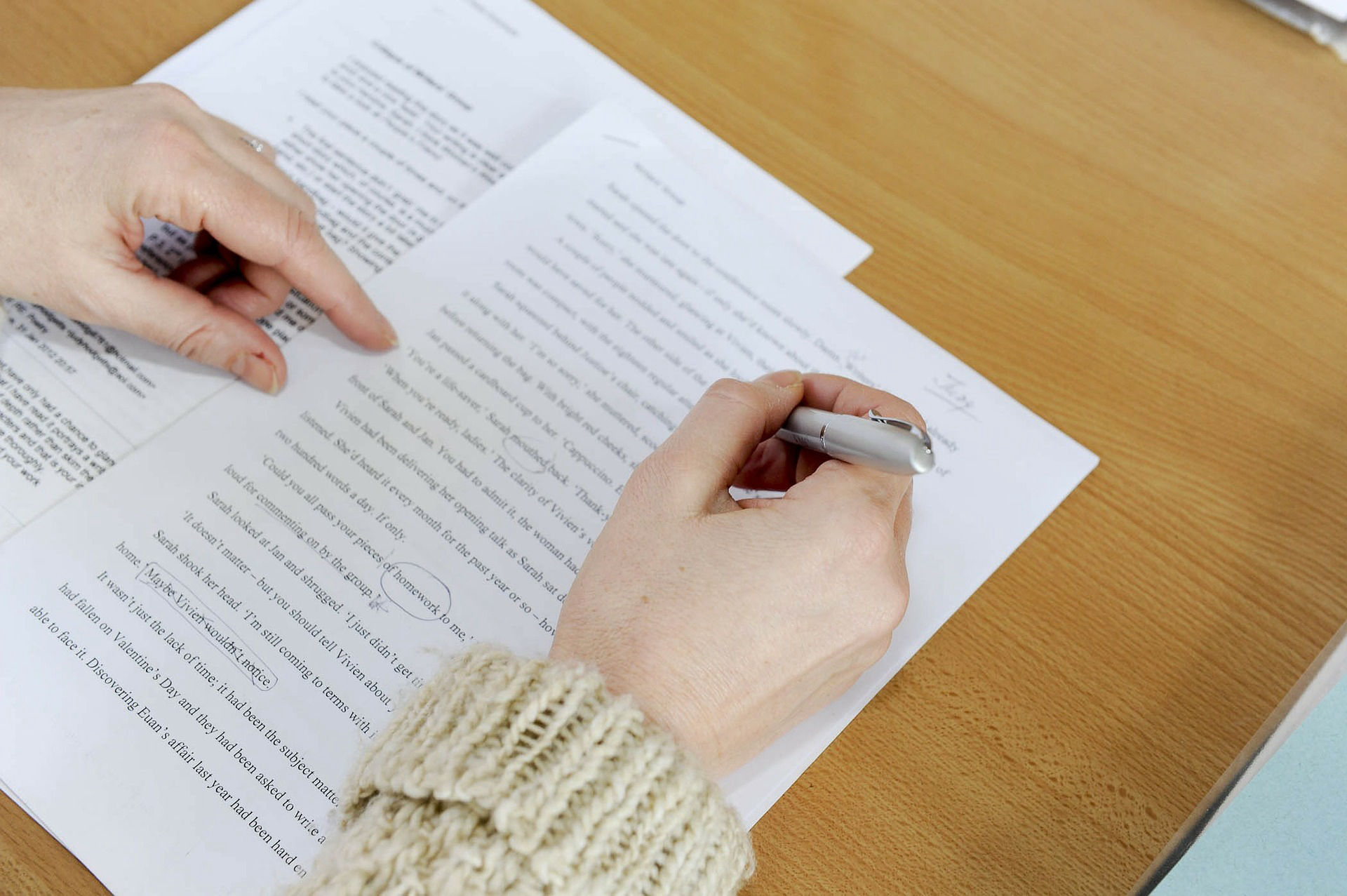

Part of the publication process involves editing. And for some new to the world of publishing and/or writing in general, it’s not always something people give much thought to when seeking publication of their work. Some might not even know an editor is needed and others, while they’re aware you need one, don’t really know where to find one let alone what sort of editor would be a good fit for their work.
In order to help clear up some of the mystery and confusion on the topic I picked the brain of editor, Christa Yelich-Koth. I’ve worked with her in the past and know she keeps busy editing a variety of material, making her a perfect candidate to share some insight.
Thanks for taking the time to answer some questions, Christa. Let’s start off with the most basic one:
What does an editor do exactly?
An editor goes through a manuscript and gives feedback about what areas could be improved to get the best writing and storytelling possible for the author’s book, all the while maintaining that author’s style.
Some reading this might not know there are more than just one type of edit an editor can undertake. Could you please share a little on what different types of edits exist and what each entails?
There are three main types of edits:
1) Developmental: This involves overall issues in the book, such as plot development, character traits, flow of the narrative, clarification issues, etc.
2) Copy/line editing: This involves a more detailed look at the book, including grammar, structure, flow of paragraphs/sentences, awkwardness of writing, etc.
3) Proofreading: This is the most detailed look at the book, which includes final errors in the finished manuscript, such as punctuation, spelling mistakes, capitalization errors, paragraph misalignment, etc.
So it’s important that writers know what they’d need or want for their manuscript. And from my own experience I’ve learned that not every editor you come across might be able or willing to undertake all three types of edits. Some often focus on one over the others for various reasons. All the more reason to do some due diligence before making that final agreement.
But getting back more specifically to the editor, can anyone be one? Is there some special training or schooling they have to undertake for it?
You don’t need something like a degree or certificate to be an editor, so anyone can do it. So when searching for an editor, it’s always good to check their backgrounds. Did they go to school for English, do they teach workshops, have they edited successful books/worked with successful authors, etc.
If anyone can be an editor then is there a particular sort of style guide editors work from or are things more freeform in that respect?
The two main ones used for books are Chicago Style and APA Style.
If someone is seeking an editor for their work where should they look? And what should they look for in that editor?
There are several sites (such as the EFA or Reedsy) where you can find professional editors. Another way is to join a writing group and ask other authors who they’ve used/recommend. A third way is to go to writing conferences and meet editors there.
You should always ask for a sample edit (usually 5 pages double-spaced) and a quote. You can also ask who else they’ve worked with and see a list of their publications. You also want to make sure the editor works within your genre. If you write romance, you may not want an editor who specializes in sci-fi.
Once someone has found a possible editor how do they know what a good rate for the job is? I know rates can and do vary but is there are sort of range most could or should look for in general?
This is a tricky question. It depends on a few factors:
1) What type of editing do you need, developmental, copy, or proofreading. Each of these cost different, getting cheaper respectively.
2) What experience does the editor have? If they are well-known and have worked with multiple bestselling authors, their rates are most likely higher, as they are worth more to work with. Newer editors will be cheaper, but you may find they aren’t as qualified.
3) Per hour or per word count: This can be tricky as well. Per hour is difficult to get an exact quote, as the amount of time needed to put into a book can vary. Going by word count is more precise, but then you don’t know if you’re overpaying for the amount of hours they put in.
In general, you can expect to pay anywhere between $500-$4000 per round of edits, putting in all the above factors. It’s not cheap, but remember, editors are doing work as well. If you think about it, even if it takes you 10 hours to read a book straight through, it takes much longer to stop, add comments, add suggestions, research items in the book for continuity, etc. An editor is making a living off of this and it’s their job to pull apart your book, step by step, to make sure it’s in the best shape possible.
What if you’re not happy with the work the editor’s done, is there a way to correct things or even get your money refunded?
Many editors have a refund policy. If they don’t, make sure you have one in play before you begin. It’s also why a sample edit is a good idea, so you can see what types of edits the editor may recommend, and see if you think it’ll help your book.
Assuming someone’s found an editor for their work and is ready to get started, what should an author also have ready to provide the editor when they send them their manuscript?
The author should have the most polished version of their story complete before they send it. It’s not an editor’s job to teach you how to write. I suggest going to classes or workshops first, then reworking your book, THEN send it to an editor. The reason for this is that editors cost a lot. You don’t want to waste your money.
Since you’ve been doing this awhile and I’m sure have been able to speak with other editors as well over the years, is there anything you wish authors knew or did before they sent you their manuscript?
1) Make sure someone else has read through your book before you send it to an editor. Whether it be a beta reader, a classmate, etc.
2) Understand the cost of editing. As a writer myself, I know how much it is to shell out $1500 to get an edit. It’s rough. Many editors offer payment plans to help you with this.
3) Don’t work with an editor unless you like their sample edit. Otherwise it’s a waste of their time and yours if you come back saying: I don’t like your suggestions.
A big thank you for Christa for taking the time to answer these questions in such an informative and concise manner. Hopefully you’re now better informed on what goes into an edit and where you’d like to make your next move regarding the matter.

Get updates on the latest news, book releases, deals, signings, and more. No spam. No hassles. All free. Sign up today.